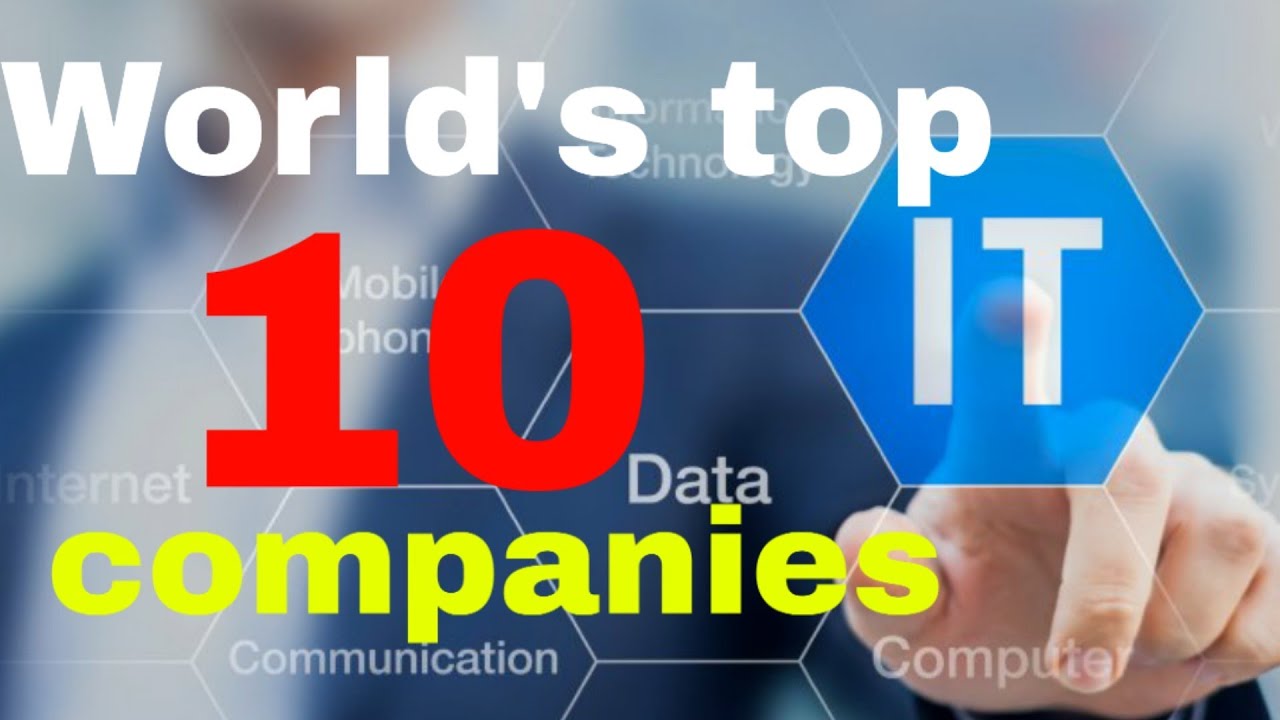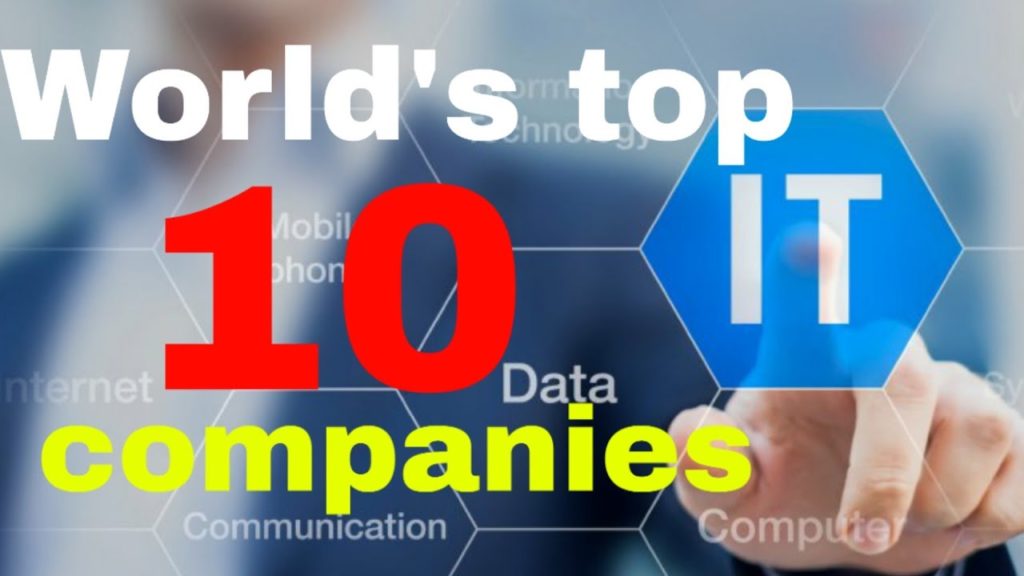An organization is a legitimate substance that is framed by the gathering to participate and maintain a business undertaking in a modern limit. The business allows an opportunity to develop at remarkable levels. Everybody needs to be important for such organizations which are famous, significant, and the biggest. Thus, let us take a gander at the main 10 organizations in the world as indicated by income.
Table of Contents
1.Walmart(WMT)

Walmart is one of the world’s largest multinational retail corporations, operating a chain of hypermarkets, discount department stores, and grocery stores. Founded by Sam Walton in 1962, Walmart has grown into a global retail giant with a significant presence in various countries around the world.
Here are some key details about Walmart:
History:
- Founding: Walmart was founded by Sam Walton in Rogers, Arkansas, USA, in 1962.
- Expansion: The company expanded rapidly throughout the latter half of the 20th century, becoming one of the dominant forces in the retail industry.
- International Expansion: Walmart expanded internationally in the 1990s and 2000s, entering markets such as Mexico, Canada, the United Kingdom, China, and others.
Operations:
- Retail Formats: Walmart operates under various retail formats, including Walmart Supercenters, discount stores, neighborhood markets, and Sam’s Club warehouse clubs.
- E-commerce: Walmart has made significant investments in e-commerce to compete with online retailers like Amazon. It acquired Jet.com in 2016 and has been expanding its online presence since then.
Financials:
- Revenue: Walmart consistently ranks among the top companies by revenue globally. Its revenue comes from a diverse range of products and services.
- Profitability: The company has historically maintained healthy profit margins, leveraging its massive scale and efficient supply chain.
Corporate Social Responsibility (CSR):
- Walmart has faced criticism over its labor practices and its impact on local businesses, particularly in smaller communities where it operates.
- The company has made efforts to improve its environmental sustainability, supply chain transparency, and employee benefits in recent years.
Recent Developments:
- Technology Investments: Walmart has been investing in technology to enhance its operations, including initiatives in automation, data analytics, and artificial intelligence.
- Healthcare Initiatives: The company has also been expanding its presence in the healthcare sector, including offering pharmacy services and health clinics within some of its stores.
- Partnerships and Acquisitions: Walmart has formed partnerships and made strategic acquisitions to strengthen its position in various markets and industries.
Challenges:
- Competition: Walmart faces intense competition from both traditional retailers and e-commerce giants like Amazon.
- Regulatory Issues: The company has encountered regulatory challenges in various countries related to labor practices, antitrust concerns, and environmental regulations.
Thus, Walmart remains a dominant force in the global retail industry, known for its scale, efficiency, and wide range of products and services. As consumer preferences and shopping habits continue to evolve, Walmart is adapting its strategies to remain competitive while addressing challenges related to technology, sustainability, and social responsibility.
2.Amazon

Amazon.com is a multinational technology and e-commerce company founded by Jeff Bezos in 1994. It started as an online bookstore but quickly diversified into various product categories and services, eventually becoming one of the world’s largest and most influential companies. Here are the details about Amazon:
History:
- Founding: Amazon was founded by Jeff Bezos in Seattle, Washington, in July 1994.
- Early Days: Initially started as an online bookstore, Amazon expanded its offerings to include a wide range of products such as electronics, apparel, toys, and more.
- Diversification: Over the years, Amazon diversified its business into various sectors, including cloud computing, artificial intelligence, digital streaming, and brick-and-mortar retail.
Operations:
- E-commerce: Amazon operates one of the largest online marketplaces globally, connecting buyers and sellers from around the world.
- Amazon Web Services (AWS): AWS is Amazon’s cloud computing platform, offering a wide range of services including computing power, storage, and databases to businesses and individuals.
- Digital Content and Services: Amazon provides digital content such as e-books, music, movies, and TV shows through services like Kindle, Prime Video, Prime Music, and Audible.
- Brick-and-Mortar Retail: Amazon has expanded into brick-and-mortar retail with the acquisition of Whole Foods Market and the launch of Amazon Go convenience stores.
Financials:
- Revenue: Amazon has experienced rapid revenue growth, driven by its diverse business segments and global expansion.
- Profitability: While Amazon’s revenue continues to grow, its profitability has been variable due to heavy investments in technology, infrastructure, and expansion into new markets.
Corporate Culture:
- Customer-Centric Approach: Amazon is known for its relentless focus on customer satisfaction and innovation. Its customer-centric approach has been a key driver of its success.
- Innovation: Amazon has a strong culture of innovation, constantly experimenting with new technologies and business models to improve its offerings and customer experience.
Challenges and Controversies:
- Antitrust Scrutiny: Amazon has faced scrutiny from regulators and policymakers over its market dominance and alleged anticompetitive practices.
- Labor Practices: The company has been criticized for its treatment of warehouse workers and delivery drivers, including issues related to working conditions, wages, and employee rights.
- Environmental Impact: Amazon has faced criticism for its environmental impact, particularly regarding carbon emissions from its logistics operations and packaging waste.
- Data Privacy: Like other tech giants, Amazon has faced scrutiny over data privacy and security practices, particularly concerning the collection and use of customer data.
Recent Developments:
- Expansion and Acquisitions: Amazon continues to expand its presence globally and invest in new businesses and technologies. Recent acquisitions include the purchase of MGM Studios, which strengthens its content library for Prime Video.
- Focus on Sustainability: Amazon has announced initiatives to reduce its carbon footprint and achieve net-zero carbon emissions by 2040 through investments in renewable energy and sustainable packaging.
- Healthcare Ventures: Amazon has entered the healthcare sector with initiatives such as the acquisition of Pill Pack, an online pharmacy, and the launch of Amazon Pharmacy.
Thus, Amazon has reshaped the retail landscape and transformed various industries through its innovative business model, technological prowess, and customer-centric approach. As it continues to expand its reach and diversify its offerings, Amazon faces both opportunities and challenges in navigating regulatory scrutiny, maintaining customer trust, and addressing societal concerns.
3. China national Petroleum Corporation (CNPC)
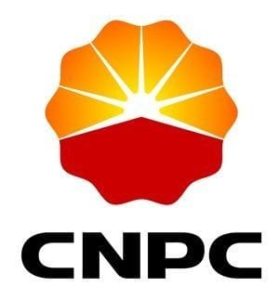
China National Petroleum Corporation (CNPC) is one of the largest state-owned oil and gas companies in the world. Here are the details about CNPC:
Overview:
- Establishment: CNPC was founded in 1988 as a state-owned entity under the supervision of the State Council of the People’s Republic of China.
- Operations: The company engages in various activities related to the exploration, production, refining, and distribution of oil and gas both domestically and internationally.
Key Operations and Subsidiaries:
- Exploration and Production: CNPC is involved in exploration and production activities in numerous oil and gas fields both within China and abroad.
- Refining and Petrochemicals: CNPC operates refineries and petrochemical plants, producing a wide range of petroleum-based products.
- Natural Gas and LNG: CNPC is actively involved in the exploration, production, and distribution of natural gas, including liquefied natural gas (LNG).
- Pipeline Infrastructure: The company owns and operates an extensive network of pipelines for the transportation of crude oil, natural gas, and refined products.
- International Operations: CNPC has expanded its operations globally through investments in oil and gas projects in various countries, particularly in Africa, Central Asia, and the Middle East.
Strategic Importance:
- Energy Security: CNPC plays a crucial role in ensuring China’s energy security by meeting the country’s growing demand for oil and gas.
- Economic Development: The company contributes significantly to China’s economic development through its operations in the energy sector, including job creation and infrastructure investment.
Challenges and Controversies:
- Environmental Concerns: CNPC’s operations have raised environmental concerns, including pollution from refineries and oil spills.
- Safety Issues: The company has faced criticism for safety lapses and accidents in its operations, resulting in environmental damage and loss of life.
- Political and Regulatory Risks: CNPC operates in various countries with diverse political and regulatory environments, which may pose challenges to its operations and investments.
Technological Innovation:
- Research and Development: CNPC invests in research and development to improve exploration and production techniques, enhance operational efficiency, and reduce environmental impact.
- Digitalization: The company utilizes digital technologies such as data analytics and artificial intelligence to optimize its operations and decision-making processes.
Thus ,CNPC plays a pivotal role in China’s energy landscape as a key player in the exploration, production, refining, and distribution of oil and gas. As China continues to urbanize and industrialize, CNPC faces both opportunities and challenges in meeting the country’s growing energy demand while addressing environmental concerns, ensuring operational safety, and navigating geopolitical complexities in its international ventures.
4. China Petrochemical Corporation (Sinopec Group)
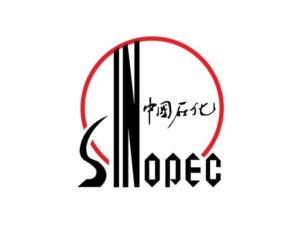
China Petrochemical Corporation, also known as Sinopec Group, is one of the largest state-owned petroleum and petrochemical companies in China, and it ranks among the largest companies in the world. Here’s a detailed overview of Sinopec Group:
Overview:
- Establishment: Sinopec Group was founded in 1998 as a state-owned enterprise, following the restructuring of China’s petroleum industry.
- Ownership: The company is wholly owned by the Chinese government and operates under the supervision of the State-owned Assets Supervision and Administration Commission (SASAC).
- Headquarters: Sinopec Group is headquartered in Beijing, China.
Operations and Business Segments:
Sinopec Group operates across the entire petroleum and petrochemical value chain, with key business segments including:
- Upstream Exploration and Production:
- Sinopec Group engages in the exploration, development, and production of crude oil and natural gas both domestically and internationally.
- The company operates oil and gas fields in various regions of China and has exploration and production projects in countries around the world.
- Downstream Refining and Marketing:
- Sinopec Group owns and operates a vast network of refineries, which process crude oil into refined petroleum products such as gasoline, diesel, jet fuel, and petrochemicals.
- The company markets and distributes these products through a nationwide network of service stations and retail outlets across China.
- Petrochemicals:
- Sinopec Group is a major producer of petrochemicals, including ethylene, propylene, polyethylene, polypropylene, and other chemical products.
- The company’s petrochemical operations serve a wide range of industries, including automotive, construction, electronics, packaging, and textiles.
- Natural Gas and Pipeline Infrastructure:
- Sinopec Group is involved in the production, transmission, and distribution of natural gas in China.
- The company owns and operates natural gas pipelines and storage facilities to support its gas distribution network.
Key Initiatives and Developments:
- Technological Innovation: Sinopec Group invests in research and development to enhance operational efficiency, improve environmental performance, and develop advanced technologies in exploration, production, refining, and petrochemical processes.
- Environmental Sustainability: The company is committed to environmental protection and sustainable development, implementing measures to reduce greenhouse gas emissions, enhance energy efficiency, and minimize environmental impact across its operations.
- International Expansion: Sinopec Group has expanded its global footprint through strategic investments and partnerships in oil and gas projects, refining, and petrochemical ventures in countries around the world, including Africa, Asia, the Middle East, and South America.
Challenges and Controversies:
- Environmental Concerns: Sinopec Group’s operations have been associated with environmental pollution and industrial accidents, raising concerns about air and water quality, soil contamination, and health risks for local communities.
- Safety Issues: The company has faced criticism for safety lapses and accidents in its operations, resulting in workplace injuries, fatalities, and environmental damage.
- Regulatory Compliance: Sinopec Group operates in a highly regulated industry, facing compliance requirements related to environmental standards, safety regulations, and government oversight.
Thus, Sinopec Group plays a critical role in China’s energy security and economic development as a leading player in the petroleum and petrochemical industry. As China continues to industrialize and urbanize, Sinopec Group faces opportunities and challenges in meeting the country’s growing energy demand, driving technological innovation, promoting environmental sustainability, and navigating regulatory complexities in its domestic and international operations.
5. Apple

Apple Inc. is a multinational technology company headquartered in Cupertino, California, USA. Founded on April 1, 1976, by Steve Jobs, Steve Wozniak, and Ronald Wayne, Apple has become one of the most valuable and recognizable brands in the world. Here’s a detailed overview of Apple:
Overview:
- Founding: Apple was founded by Steve Jobs, Steve Wozniak, and Ronald Wayne in a garage in Los Altos, California. The company initially focused on designing and selling personal computers.
- Transformation: Over the years, Apple has transformed into a global technology powerhouse, expanding its product lineup to include smartphones, tablets, wearables, computers, software, and digital services.
- Brand Identity: Apple is renowned for its innovative design, user-friendly interfaces, premium build quality, and ecosystem of hardware, software, and services.
Key Products and Services:
- iPhone: Apple’s flagship product, the iPhone, revolutionized the smartphone industry with its intuitive touchscreen interface, sleek design, and ecosystem of apps and services.
- iPad: Apple’s tablet computer, the iPad, offers a portable and versatile computing experience for users across various industries, including education, business, and entertainment.
- Mac: Apple’s lineup of Mac computers, including the MacBook Pro, MacBook Air, iMac, and Mac Pro, are known for their performance, reliability, and integration with macOS.
- Apple Watch: Apple’s wearable device, the Apple Watch, combines fitness tracking, health monitoring, and communication features in a sleek and customizable design.
- Services: Apple offers a range of digital services, including the App Store, Apple Music, Apple TV+, Apple Arcade, iCloud, Apple Pay, and AppleCare, enhancing the user experience and generating recurring revenue.
- Software: Apple develops and maintains its operating systems, including iOS for iPhone and iPad, macOS for Mac computers, watch OS for Apple Watch, and tv OS for Apple TV.
Retail:
- Apple Stores: Apple operates a network of retail stores worldwide, providing customers with hands-on experiences, technical support, and personalized services.
- Online Store: In addition to physical stores, Apple offers an online store where customers can purchase products, accessories, and services.
Corporate Culture and Values:
- Design Excellence: Apple is committed to design excellence, emphasizing simplicity, elegance, and functionality in its products and user interfaces.
- Innovation: Innovation is at the core of Apple’s culture, driving the development of groundbreaking technologies and products that anticipate and shape consumer trends.
- Privacy and Security: Apple prioritizes user privacy and data security, implementing robust encryption and privacy features across its ecosystem of devices and services.
Financial Performance:
- Revenue: Apple generates significant revenue from the sale of hardware products, digital services, and accessories.
- Profitability: The company consistently ranks among the most profitable companies globally, with healthy profit margins and strong cash reserves.
Environmental and Social Responsibility:
- Environmental Initiatives: Apple is committed to environmental sustainability, sourcing renewable energy, reducing carbon emissions, and minimizing the environmental footprint of its products and operations.
- Supplier Responsibility: Apple works closely with its suppliers to uphold labor and environmental standards, promote worker welfare, and ensure ethical sourcing and manufacturing practices.
Challenges:
- Competition: Apple faces intense competition in the technology industry from rivals such as Samsung, Google, Microsoft, and Huawei.
- Regulatory Scrutiny: Apple is subject to regulatory scrutiny and legal challenges related to antitrust concerns, privacy regulations, labor practices, and tax policies.
Thus, Apple’s impact on technology, design, and culture is profound, shaping the way people communicate, work, and interact with digital devices and services. As the company continues to innovate and expand its product and service offerings, Apple faces opportunities and challenges in maintaining its leadership position, driving sustainable growth, and addressing the evolving needs and expectations of its customers and stakeholders.
6. VS health corp. (CVS)

CVS Health Corporation (NYSE: CVS) is a prominent American healthcare company that operates a variety of businesses within the healthcare sector. Here’s a detailed overview of CVS Health:
Overview:
- Founding: CVS Health traces its roots back to 1963 when the first CVS store opened in Lowell, Massachusetts. Originally named Consumer Value Stores, it eventually became CVS Corporation and later CVS Health Corporation to reflect its broader scope in the healthcare industry.
- Headquarters: The company is headquartered in Woonsocket, Rhode Island, USA.
Business Segments:
CVS Health operates through several key business segments:
- Retail Pharmacy: CVS operates a vast network of retail pharmacies, offering prescription drugs, over-the-counter medications, health and beauty products, and general merchandise.
- Pharmacy Services: CVS provides pharmacy benefit management (PBM) services to employers, health insurance companies, government agencies, and other clients. This segment includes services such as mail-order pharmacy, specialty pharmacy, and clinical services.
- Healthcare Clinics: CVS operates Minute Clinic walk-in medical clinics located within many of its retail pharmacy locations. These clinics offer basic medical services, vaccinations, wellness checks, and treatment for minor illnesses and injuries.
- Health Insurance: CVS Health owns Aetna, one of the largest health insurance companies in the United States. Aetna provides health insurance coverage to individuals, employers, and Medicare and Medicaid beneficiaries.
- Long-Term Care Pharmacy Services: CVS serves long-term care facilities, nursing homes, and assisted living facilities by providing prescription medications, pharmacy consulting services, and medication management solutions.
Key Initiatives and Developments:
- Vertical Integration: CVS Health’s acquisition of Aetna in 2018 was a significant move toward vertical integration, aiming to create a more comprehensive healthcare ecosystem that integrates pharmacy services, healthcare benefits, and clinical care.
- Digital Innovation: CVS has invested in digital technologies and online platforms to improve access to healthcare services, enhance medication adherence, and streamline the pharmacy experience for customers.
- Community Health Initiatives: CVS Health has launched various community health initiatives focusing on areas such as smoking cessation, opioid abuse prevention, chronic disease management, and access to affordable healthcare services.
Corporate Social Responsibility:
- Health Equity: CVS Health is committed to addressing health disparities and promoting health equity among underserved populations through community outreach, education, and access to healthcare services.
- Sustainability: The company has implemented sustainability initiatives to reduce its environmental impact, conserve natural resources, and promote responsible business practices.
Challenges:
- Regulatory Environment: CVS Health operates in a heavily regulated industry, facing compliance requirements related to healthcare laws, privacy regulations, and pharmacy operations.
- Competition: The healthcare industry is highly competitive, with CVS Health facing competition from other retail pharmacies, pharmacy benefit managers, health insurers, and healthcare providers.
- Consumer Trends: Changing consumer preferences, advancements in technology, and shifts in healthcare delivery models present challenges and opportunities for CVS Health to adapt and innovate.
Financial Performance:
- Revenue: CVS Health generates revenue from its retail pharmacy, pharmacy services, health insurance, and specialty pharmacy businesses.
- Profitability: The company’s financial performance is influenced by factors such as prescription drug pricing, healthcare utilization trends, and regulatory changes.
Thus, CVS Health Corporation is a leading player in the healthcare industry, providing a wide range of pharmacy, healthcare, and insurance services to individuals, employers, and government agencies. As the healthcare landscape continues to evolve, CVS Health faces opportunities and challenges in driving innovation, improving healthcare outcomes, and delivering value to its customers and stakeholders.
7. UnitedHealth group

UnitedHealth Group Incorporated (NYSE: UNH) is one of the largest healthcare companies in the world, offering a broad spectrum of healthcare products and services. Here’s a detailed overview:
Overview:
- Founding: UnitedHealth Group was founded in 1977 and is headquartered in Minnetonka, Minnesota, USA.
- Leadership: The company is led by CEO Andrew Witty, who succeeded David Wichmann in 2021.
- Corporate Structure: UnitedHealth Group operates through two main business platforms: UnitedHealthcare, which focuses on health benefits, and Optum, which provides health services and technology solutions.
Business Segments:
- UnitedHealthcare:
- UnitedHealthcare is one of the largest health insurance providers in the United States, offering a wide range of health benefit plans for individuals, employers, and government programs like Medicare and Medicaid.
- The company provides coverage for medical services, prescription drugs, dental and vision care, behavioral health, and more.
- UnitedHealthcare operates a network of healthcare providers, including physicians, hospitals, and other healthcare facilities.
- Optum:
- Optum is UnitedHealth Group’s health services and innovation arm, providing a diverse array of services and solutions to improve healthcare delivery, quality, and affordability.
- Optum’s offerings include pharmacy care services, care delivery, population health management, analytics, and health information technology solutions.
- Optum serves healthcare providers, payers, employers, government agencies, and consumers with a focus on data-driven insights and innovation.
Key Initiatives and Developments:
- Data Analytics and Technology: UnitedHealth Group invests heavily in data analytics, artificial intelligence, and technology to improve healthcare outcomes, streamline operations, and enhance the patient experience.
- Telehealth and Virtual Care: The company has expanded its telehealth and virtual care offerings, especially in response to the COVID-19 pandemic, to provide convenient and accessible healthcare services to patients.
- Population Health Management: UnitedHealth Group leverages data analytics and population health management strategies to identify and address gaps in care, manage chronic diseases, and improve health outcomes for diverse populations.
- Healthcare Innovation: The company actively pursues partnerships, acquisitions, and collaborations to drive healthcare innovation and address emerging trends and challenges in the industry.
Corporate Social Responsibility:
- Community Engagement: UnitedHealth Group is involved in various community engagement and philanthropic initiatives focused on healthcare access, education, and wellness.
- Diversity and Inclusion: The company is committed to fostering a diverse and inclusive workplace culture, promoting diversity among its employees, suppliers, and partners.
Financial Performance:
- Revenue: UnitedHealth Group generates significant revenue from its health insurance and health services businesses, driven by premium revenue, service fees, and technology solutions.
- Profitability: The company has historically demonstrated strong financial performance, with healthy profit margins and consistent earnings growth.
Challenges:
- Regulatory Environment: UnitedHealth Group operates in a highly regulated industry and faces regulatory compliance requirements related to healthcare laws, privacy regulations, and insurance mandates.
- Healthcare Costs: Managing healthcare costs and addressing affordability concerns remain ongoing challenges for the company, given the complexity of the healthcare system and rising medical expenses.
- Competition: UnitedHealth Group competes with other health insurers, healthcare providers, pharmacy benefit managers, and technology companies in a rapidly evolving and competitive market.
Thus, UnitedHealth Group is a leading player in the healthcare industry, providing health insurance, health services, and technology solutions to millions of individuals and organizations across the United States and globally. As healthcare continues to evolve, UnitedHealth Group remains focused on innovation, collaboration, and improving healthcare outcomes while navigating regulatory requirements, addressing affordability concerns, and meeting the diverse needs of its stakeholders.
8. Toyota Motor Corporation
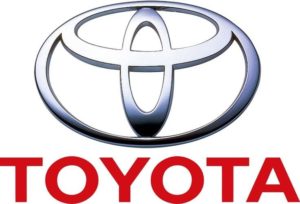
Toyota Motor Corporation is a Japanese multinational automotive manufacturer headquartered in Toyota City, Aichi, Japan. Founded in 1937 by Kiichiro Toyoda, Toyota has grown to become one of the largest automakers in the world. Here’s a detailed overview of Toyota Motor Corporation:
Overview:
- Founding: Toyota Motor Corporation was founded by Kiichiro Toyoda as a spinoff from his father’s company, Toyoda Automatic Loom Works.
- Global Presence: Toyota operates in numerous countries and regions worldwide, with manufacturing plants, research and development facilities, and sales operations across the globe.
- Corporate Culture: Toyota is known for its emphasis on quality, innovation, and continuous improvement, as reflected in its renowned Toyota Production System (TPS) and principles of “Kaizen” (continuous improvement) and “Just-in-Time” manufacturing.
Business Segments:
- Automobiles: Toyota manufactures a diverse range of automobiles, including sedans, SUVs, trucks, hybrids, and electric vehicles (EVs) under various brands such as Toyota, Lexus, and Daihatsu.
- Financial Services: Toyota Financial Services provides financing, leasing, insurance, and other financial products and services to customers and dealerships.
- Other Businesses: Toyota is involved in other business areas, including robotics, housing, and telecommunications, though automobiles and financial services are its primary revenue drivers.
Key Initiatives and Developments:
- Hybrid Technology: Toyota has been a pioneer in hybrid vehicle technology, most notably with its Prius model, which was one of the first mass-produced hybrid vehicles.
- Electric Vehicles (EVs): Toyota is investing in electric vehicle technology and has developed electric cars such as the Toyota RAV4 EV and the Toyota bZ4X, part of its commitment to reducing greenhouse gas emissions and promoting sustainable transportation.
- Autonomous Driving: Toyota is investing in autonomous driving technology and has partnerships with tech companies to develop self-driving vehicles and advanced driver-assistance systems (ADAS).
- Mobility Solutions: Toyota is exploring mobility solutions beyond traditional car ownership, including ride-sharing, car-sharing, and mobility-as-a-service (MaaS) platforms.
Corporate Social Responsibility:
- Environmental Sustainability: Toyota is committed to reducing its environmental impact through initiatives such as vehicle electrification, fuel efficiency improvements, and waste reduction in manufacturing.
- Safety: Toyota prioritizes safety in its vehicles and participates in safety research and advocacy efforts to improve automotive safety standards.
- Community Engagement: Toyota is involved in various philanthropic and community engagement initiatives, supporting education, environmental conservation, disaster relief, and community development.
Manufacturing and Supply Chain:
- Toyota Production System (TPS): Toyota’s manufacturing philosophy, based on TPS principles, emphasizes efficiency, quality, and waste reduction in production processes.
- Global Production: Toyota operates manufacturing plants and assembly lines worldwide, with a focus on local production to meet regional demand and reduce transportation costs.
- Supply Chain Management: Toyota works closely with its suppliers to ensure a reliable supply chain, optimize inventory levels, and maintain high-quality standards throughout its production processes.
Financial Performance:
- Revenue: Toyota generates significant revenue from vehicle sales, financial services, and other business segments.
- Profitability: The company has historically demonstrated strong financial performance, driven by its global market presence, brand reputation, and diversified product portfolio.
Challenges:
- Competition: Toyota faces competition from other automakers, both traditional and new entrants, in a rapidly evolving automotive industry.
- Regulatory Environment: Compliance with evolving regulations related to emissions standards, safety requirements, and trade policies presents challenges and opportunities for Toyota.
- Technological Disruption: Technological advancements, including electric vehicles, autonomous driving, and mobility services, require Toyota to adapt and innovate to remain competitive in the market.
Thus, Toyota Motor Corporation is a global leader in the automotive industry, known for its commitment to quality, innovation, and sustainability. With a diverse product portfolio, a strong emphasis on corporate social responsibility, and a history of continuous improvement, Toyota continues to shape the future of mobility while navigating challenges and opportunities in the dynamic automotive landscape.
9. Volkswagen AG

Volkswagen AG is a leading global automotive manufacturer headquartered in Wolfsburg, Germany. Here’s a detailed overview of Volkswagen AG:
Overview:
- Founding: Volkswagen AG was founded in 1937 by the German Labor Front, a Nazi organization, and originally operated under the name “Volkswagenwerk GmbH.”
- Brands: Volkswagen AG is known for producing vehicles under various brands, including Volkswagen Passenger Cars, Audi, SEAT, Škoda, Bentley, Bugatti, Lamborghini, Porsche, Ducati (motorcycles), and Volkswagen Commercial Vehicles.
- Global Presence: Volkswagen operates production facilities, sales offices, and research centers in many countries worldwide, making it one of the largest automotive manufacturers globally.
Business Segments:
- Passenger Cars: Volkswagen Passenger Cars is the core brand of the Volkswagen Group, offering a wide range of vehicles from compact cars to luxury sedans and SUVs.
- Audi: Audi is Volkswagen’s premium brand, known for its innovative design, advanced technology, and high-performance vehicles.
- SEAT and Škoda: SEAT and Škoda are Volkswagen’s mainstream brands, offering affordable and practical vehicles with a focus on quality and value.
- Porsche: Porsche is a renowned sports car manufacturer owned by Volkswagen AG, known for its iconic 911 series and high-performance vehicles.
- Commercial Vehicles: Volkswagen Commercial Vehicles produces vans, trucks, and buses for commercial and industrial applications.
- Motorcycles: Ducati is Volkswagen’s motorcycle brand, specializing in high-performance motorcycles for enthusiasts and racing.
Electric and Autonomous Vehicles:
- Volkswagen is investing heavily in electric vehicles (EVs) and autonomous driving technology. It aims to become a leader in sustainable mobility and reduce its carbon footprint.
- The company has introduced electric models under its Volkswagen ID. series and plans to electrify its entire lineup in the coming years.
Environmental Initiatives:
- Volkswagen has committed to reducing its environmental impact through sustainability initiatives, including the development of electric vehicles, investing in renewable energy, and reducing emissions from its manufacturing processes.
- The company has faced scrutiny over its diesel emissions scandal in 2015, where it was found to have manipulated emissions tests on diesel vehicles. Volkswagen has since worked to regain trust and invest in cleaner technologies.
Corporate Social Responsibility:
- Volkswagen AG is committed to corporate social responsibility (CSR) and sustainability. It focuses on areas such as environmental protection, employee welfare, community engagement, and ethical business practices.
- The company has implemented initiatives to promote diversity and inclusion, support education and skill development, and contribute to social welfare programs in communities where it operates.
Technological Innovation:
- Volkswagen is at the forefront of automotive innovation, investing in research and development to improve vehicle safety, performance, efficiency, and connectivity.
- The company is exploring advanced technologies such as artificial intelligence, digitalization, and mobility services to enhance the customer experience and address future mobility challenges.
Challenges:
- Competition: Volkswagen faces intense competition from other automotive manufacturers, both traditional automakers and new entrants in the electric and autonomous vehicle space.
- Regulatory Compliance: The automotive industry is subject to stringent regulations and emissions standards, requiring Volkswagen to invest in compliance measures and adapt to evolving regulatory requirements.
- Transition to Electric Vehicles: While Volkswagen is committed to electric vehicles, the transition from internal combustion engines to EVs poses challenges in terms of infrastructure, supply chain management, and consumer adoption.
Thus, Volkswagen AG is a prominent player in the global automotive industry, known for its diverse portfolio of brands, commitment to innovation, and focus on sustainability. As the automotive landscape evolves, Volkswagen continues to invest in electric and autonomous vehicles, embrace digitalization, and navigate challenges to maintain its competitive edge and leadership position in the industry.
10. Berkshire Hathaway Inc. (BRK.A)
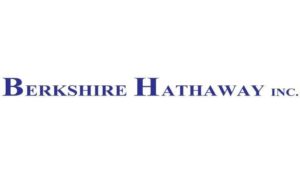
Berkshire Hathaway Inc. is a multinational conglomerate holding company led by renowned investor Warren Buffett. Here’s a detailed overview of Berkshire Hathaway:
Overview:
- Founding: Berkshire Hathaway traces its roots back to 1839 when it was established as a textile manufacturing company in Rhode Island. Warren Buffett began acquiring shares in Berkshire Hathaway in the 1960s and eventually took control of the company in 1965.
- Headquarters: The company is headquartered in Omaha, Nebraska, USA.
Business Operations:
- Investments: Berkshire Hathaway is primarily known for its investment portfolio, which includes significant holdings in various publicly traded companies across different sectors. Some of its major investments include Coca-Cola, Apple, American Express, Bank of America, and many others.
- Insurance: Berkshire Hathaway operates a diverse portfolio of insurance businesses, including GEICO, Berkshire Hathaway Reinsurance Group, Berkshire Hathaway Primary Group, and others.
- Railroad: The company owns BNSF Railway, one of the largest freight railroad networks in North America.
- Utilities and Energy: Berkshire Hathaway Energy is involved in the generation, transmission, and distribution of electricity, as well as natural gas transmission and storage.
- Manufacturing, Retail, and Services: Berkshire Hathaway owns and operates various manufacturing, retail, and service businesses, including Clayton Homes, Precision Castparts Corp., McLane Company, and others.
Investment Philosophy:
- Long-Term Perspective: Warren Buffett and Berkshire Hathaway employ a long-term investment approach, focusing on companies with strong fundamentals, competitive advantages, and sustainable business models.
- Value Investing: Buffett is known for his value investing philosophy, seeking companies with attractive valuations relative to their intrinsic value.
- Focus on Management: Berkshire Hathaway places significant emphasis on investing in companies with high-quality management teams and ethical business practices.
Corporate Culture:
- Decentralized Management: Berkshire Hathaway operates as a decentralized conglomerate, allowing its subsidiaries to maintain a significant degree of autonomy in their operations.
- Ethical Standards: Buffett and Berkshire Hathaway priorities ethical conduct, integrity, and transparency in their business dealings.
- Shareholder Focus: The company is committed to creating long-term value for its shareholders through prudent capital allocation and disciplined investment decisions.
Financial Performance:
- Revenue: Berkshire Hathaway generates revenue from its diverse portfolio of businesses, including insurance premiums, investment income, and revenue from its operating subsidiaries.
- Profitability: The company has historically demonstrated strong profitability, driven by its investment gains, insurance underwriting profits, and earnings from its operating businesses.
Corporate Social Responsibility:
- Berkshire Hathaway and Warren Buffett are known for their philanthropic efforts and commitment to giving back to society. Buffett has pledged to donate a significant portion of his wealth to charitable causes through the Bill & Melinda Gates Foundation and other philanthropic initiatives.
Challenges:
- Succession Planning: Berkshire Hathaway faces challenges related to succession planning, given Warren Buffett’s prominent role as the company’s chairman and CEO and the need to ensure continuity in leadership.
- Adapting to Changing Markets: The company must adapt to changing market conditions, technological advancements, and evolving consumer preferences across its various business segments.
Thus, Berkshire Hathaway Inc. is a unique conglomerate known for its diverse portfolio of businesses, long-term investment approach, and ethical corporate culture under the leadership of Warren Buffett. As Berkshire Hathaway continues to navigate the complexities of the global economy and capital markets, its commitment to shareholder value, integrity, and responsible business practices remains central to its long-term success.
